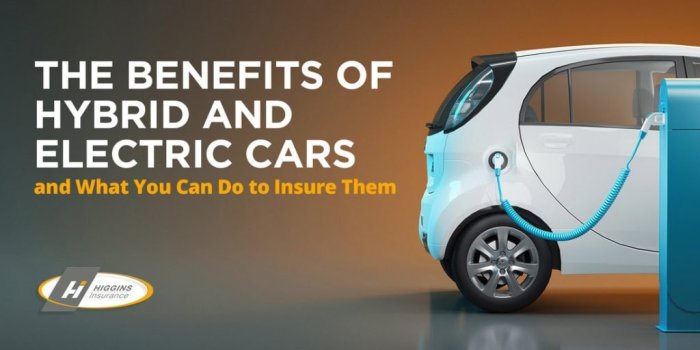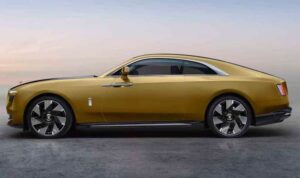Get ready to rev up your knowledge on hybrid cars benefits, cruising through the environmental advantages, cost-saving perks, and performance comparisons that make these vehicles stand out.
From government incentives to regenerative braking, this intro sets the stage for a deep dive into the world of hybrid cars.
Benefits of Hybrid Cars

Hybrid cars offer a range of benefits that appeal to both environmentally conscious individuals and savvy drivers looking to save money in the long run. Let’s explore some of the key advantages of owning a hybrid vehicle.
Environmental Benefits
Hybrid cars are renowned for their eco-friendly nature, emitting lower levels of harmful pollutants compared to traditional gasoline-powered vehicles. By incorporating electric motors and batteries, hybrids reduce greenhouse gas emissions and contribute to a cleaner, healthier environment for all.
Cost-saving Advantages
One of the most significant benefits of owning a hybrid car is the potential for long-term cost savings. While hybrid vehicles may have a higher initial purchase price, owners can recoup these costs through lower fuel expenses over time. Additionally, maintenance costs for hybrid cars are often lower, thanks to the regenerative braking systems that reduce wear and tear on components.
Performance and Efficiency
Hybrid cars are designed to offer impressive performance while maximizing fuel efficiency. The combination of a gasoline engine and an electric motor provides a seamless driving experience with ample power when needed, without compromising on fuel economy. This balance between performance and efficiency sets hybrid cars apart from their conventional counterparts.
Government Incentives and Rebates
To further incentivize the adoption of hybrid vehicles, many governments offer tax incentives, rebates, and other perks to hybrid car owners. These incentives can help offset the initial purchase price of a hybrid car and make it an even more attractive option for eco-conscious drivers. By taking advantage of these government programs, hybrid car owners can enjoy both environmental and financial benefits.
Types of Hybrid Cars: Hybrid Cars Benefits

When it comes to hybrid cars, there are several types available in the market that cater to different needs and preferences. Let’s dive into the details of each type to understand how they work and what sets them apart from traditional vehicles.
Mild Hybrids
Mild hybrids are equipped with a small electric motor that assists the gasoline engine in certain situations, such as during acceleration or cruising. Unlike full hybrids, mild hybrids cannot run solely on electric power. They offer improved fuel efficiency and reduced emissions compared to conventional vehicles.
Full Hybrids
Full hybrids, also known as strong hybrids, can operate on electric power alone, gasoline power alone, or a combination of both. They use regenerative braking to recharge the battery and have larger electric motors than mild hybrids. Popular examples of full hybrids include the Toyota Prius and the Ford Fusion Hybrid.
Plug-in Hybrids
Plug-in hybrids have larger batteries that can be recharged by plugging into an external power source, such as a wall outlet or charging station. This allows them to travel longer distances on electric power alone before the gasoline engine kicks in. Models like the Chevrolet Volt and the BMW i3 are well-known examples of plug-in hybrids.
Distinguishing Features
– Hybrid cars have regenerative braking systems that capture and store energy typically lost during braking.
– They feature automatic start-stop technology that shuts off the engine when the vehicle is at a standstill to save fuel.
– Hybrid cars often come with advanced aerodynamics and lightweight materials to improve efficiency.
– Some models offer different driving modes to prioritize fuel efficiency or performance, giving drivers more control over their driving experience.
Popular Hybrid Car Models
- Toyota Prius: A full hybrid that is known for its exceptional fuel economy and spacious interior.
- Honda Accord Hybrid: Combines a powerful engine with impressive fuel efficiency, making it a popular choice among hybrid sedan enthusiasts.
- Chevrolet Volt: A plug-in hybrid with a versatile electric range and sleek design that appeals to eco-conscious drivers.
Technology in Hybrid Cars
Hybrid cars are equipped with advanced technology to maximize fuel efficiency and reduce emissions. Let’s dive into the key technological components that make hybrid vehicles stand out.
Regenerative Braking in Hybrid Vehicles
Regenerative braking is a crucial feature in hybrid cars that helps recharge the battery while driving. When the driver brakes, the electric motor switches to generator mode, converting kinetic energy into electricity. This electricity is then stored in the battery for later use, improving overall efficiency.
Role of Electric Motors and Gasoline Engines, Hybrid cars benefits
Hybrid cars utilize both electric motors and gasoline engines to optimize performance. Electric motors provide instant torque for acceleration, while gasoline engines kick in at higher speeds or when additional power is needed. This seamless integration of power sources ensures a smooth driving experience while maximizing fuel economy.
Advancements in Battery Technology
The evolution of battery technology has been a game-changer for hybrid vehicles. Lithium-ion batteries, similar to those used in smartphones and laptops, have replaced older nickel-metal hydride batteries. These new batteries are lighter, more energy-dense, and have a longer lifespan, enhancing the overall performance and efficiency of hybrid cars.
Future of Hybrid Car Technology
The future of hybrid car technology looks promising, with ongoing research and development focused on improving battery technology, optimizing powertrain systems, and enhancing overall efficiency. As automakers strive to meet stricter emissions standards and consumer demand for eco-friendly vehicles grows, we can expect to see further advancements in hybrid car technology in the coming years.
Maintenance and Ownership
Owning a hybrid car comes with its own set of maintenance requirements and benefits. From maximizing fuel efficiency to understanding the resale value, here’s what you need to know.
Maximizing Fuel Efficiency and Battery Life
When it comes to hybrid cars, there are a few tips and tricks to help you get the most out of your fuel efficiency and battery life.
- Drive smoothly and avoid sudden acceleration or braking to conserve energy.
- Regularly check and maintain your tires to ensure they are properly inflated for optimal performance.
- Utilize regenerative braking to recharge the battery while slowing down or stopping.
- Keep up with routine maintenance, including oil changes and battery checks, to prolong the lifespan of your hybrid vehicle.
Resale Value Comparison
Hybrid cars typically have a higher resale value compared to traditional vehicles due to their fuel efficiency and eco-friendly features.
- Buyers are often willing to pay more for a used hybrid car because of the cost savings on fuel over time.
- As technology advances, the resale value of hybrid cars is expected to remain strong in the market.
- Consider the long-term savings and environmental benefits when evaluating the resale value of a hybrid car.
Common Misconceptions
There are several myths and misconceptions surrounding owning a hybrid car that may deter potential buyers.
- Myth: Hybrid cars are expensive to maintain – While initial costs may be higher, the long-term savings on fuel and maintenance can offset the upfront investment.
- Myth: Hybrid batteries need frequent replacement – Modern hybrid batteries are designed to last for the lifetime of the vehicle with proper care and maintenance.
- Myth: Hybrid cars are not powerful – Many hybrid models offer a combination of gas and electric power for a smooth and efficient driving experience.



